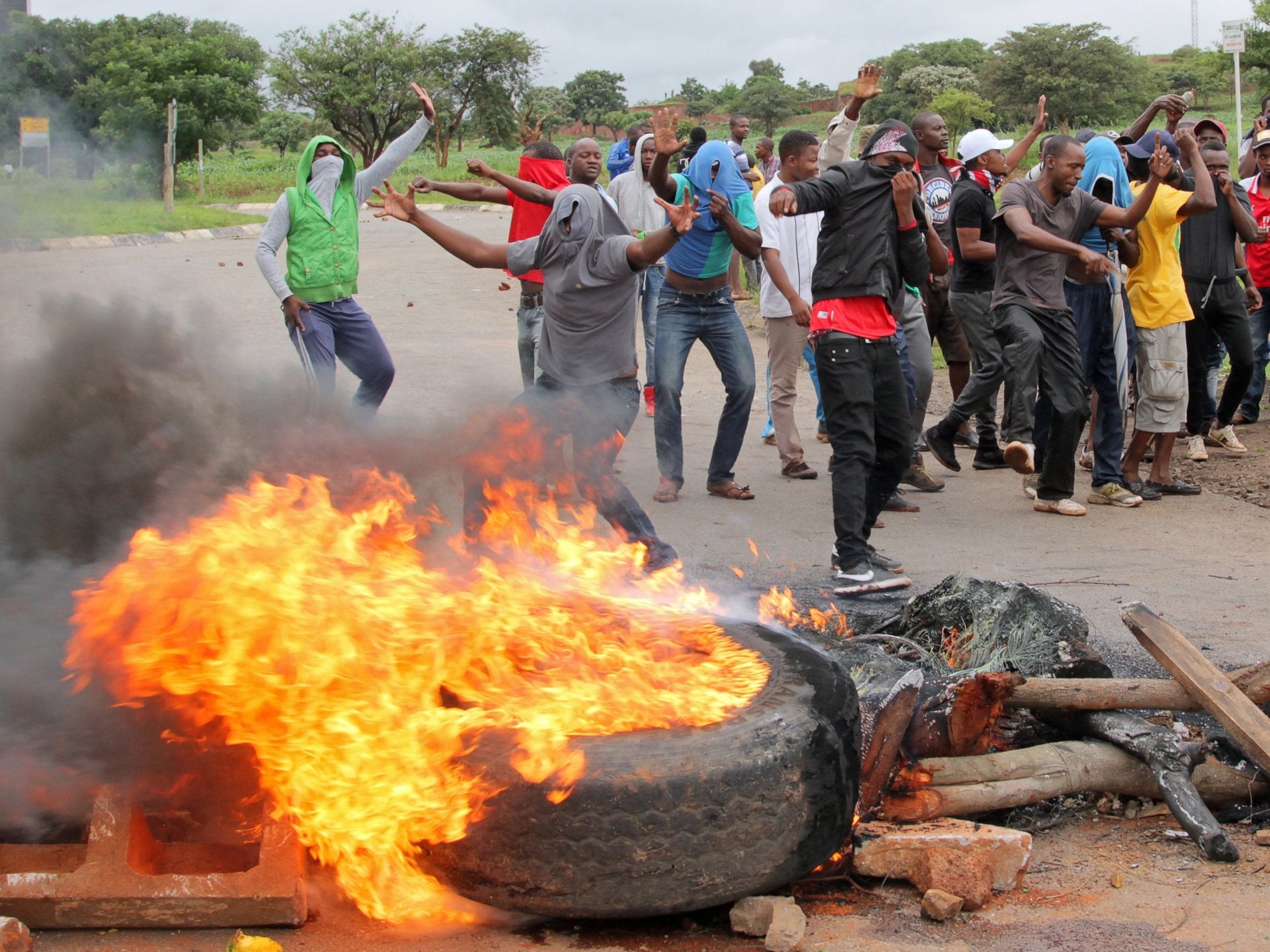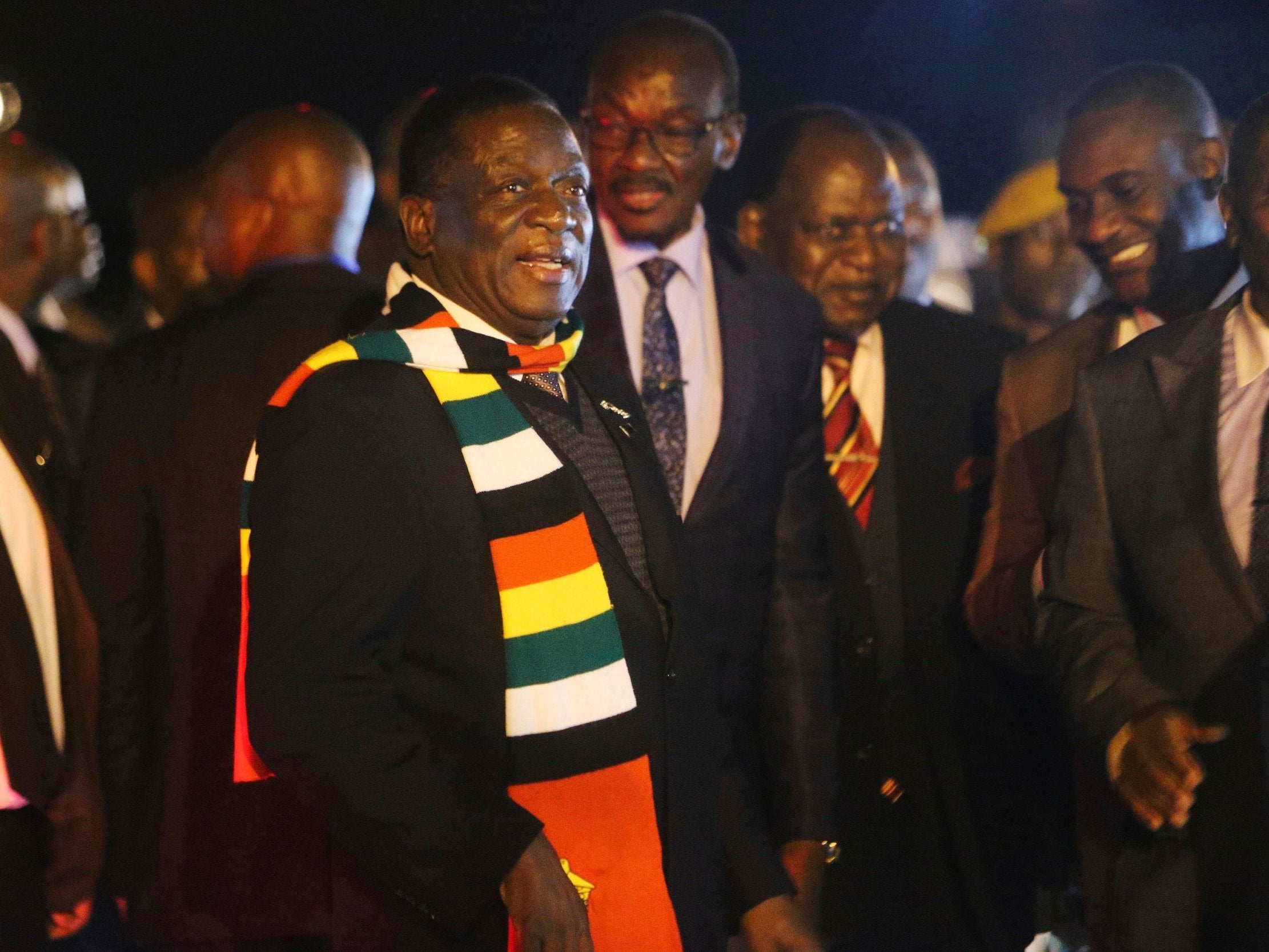Zimbabwe protests: Mnangagwa promises investigation into brutal crackdown after cutting short Davos trip
‘If required, heads will roll,’ says president after killing and alleged torture of protestsers

Your support helps us to tell the story
From reproductive rights to climate change to Big Tech, The Independent is on the ground when the story is developing. Whether it's investigating the financials of Elon Musk's pro-Trump PAC or producing our latest documentary, 'The A Word', which shines a light on the American women fighting for reproductive rights, we know how important it is to parse out the facts from the messaging.
At such a critical moment in US history, we need reporters on the ground. Your donation allows us to keep sending journalists to speak to both sides of the story.
The Independent is trusted by Americans across the entire political spectrum. And unlike many other quality news outlets, we choose not to lock Americans out of our reporting and analysis with paywalls. We believe quality journalism should be available to everyone, paid for by those who can afford it.
Your support makes all the difference.Zimbabwe’s president has cut short a visit to Europe following a brutal crackdown on protests about the economic crisis in his country.
Emmerson Mnangagwa promised to investigate deadly violence against civilians and punish any misconduct by security forces, amid fears the nation is sliding back into authoritarian rule.
Human rights groups have said at least 12 people were killed and there is evidence police systematically tortured demonstrators during the unrest last week.
“Violence or misconduct by our security forces is unacceptable and a betrayal of the new Zimbabwe,” said Mr Mnangagwa after returning to Harare late on Monday.
“Chaos and insubordination will not be tolerated,” he added. “Misconduct will be investigated. If required, heads will roll.”
The president cancelled a high-profile appearance at the World Economic Forum in Davos, Switzerland, where he had been expected to seek investment for Zimbabwe this week.
The country has seen little improvement in its collapsed economy since Mr Mnangagwa took office in late 2017 following the ousting of longtime leader Robert Mugabe.

Protests erupted last week after his government hiked fuel prices by 150 per cent, making petrol in the country more expensive than anywhere else in the world.
Authorities said the move was aimed at easing demand that had created miles-long queues at petrol stations.
But labour leaders and activists called for people to stay at home for three days in protest. Others took to the streets, with some looting in anger or desperation, sparking a violent police crackdown.
More than 600 people were arrested, with some shot or severely beaten, and the government enforced an internet blackout in a bid to prevent demonstrators organising.
The Zimbabwe Human Rights Commission (ZHRC) said the level of force used by security forces amounted to police brutality. The commission said medical reports on some of those killed and injured was evidence of systematic torture.
Lawyers and ZHRC said security forces raided homes of suspected protesters at night and beat up political occupants, charges denied by the police and army. Several opposition politicians and rights activists went into hiding.
The government accused the opposition Movement for Democratic Change party of using the protests for political means. Spokesman George Charamba on Sunday warned the crackdown was a “foretaste of things to come”, comments which fuelled fears of a return to authoritarianism.
The president struck a different tone in his first public statement since returning from Europe on Monday, pledging to investigate violence by security forces and calling for political parties to “set aside our differences and come together”.
However, he also accused demonstrators of “wanton violence and cynical destruction”.
“Everyone has the right to protest, but this was not a peaceful protest,” Mr Mnangagwa added.
Before winning a contested election in July, Mr Mnangagwa promised a clean break from the 37 year rule of Mr Mugabe, who used security forces to quell civilian protests.
Join our commenting forum
Join thought-provoking conversations, follow other Independent readers and see their replies
Comments